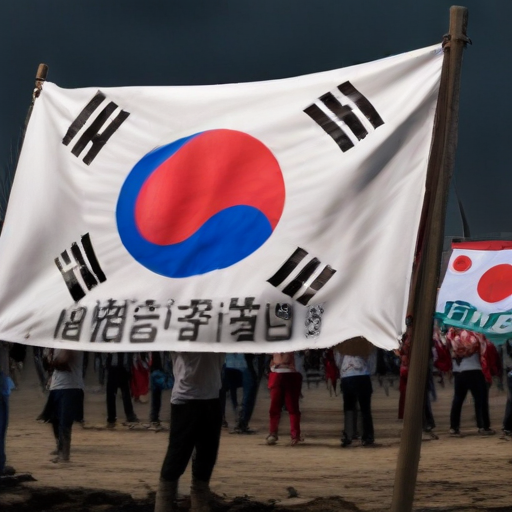In a dramatic unfolding of events, South Korea was engulfed in a mix of fear, anger, and determination as President Yoon Suk Yeol’s surprise announcement of martial law sent shockwaves across the nation. The situation escalated late on Tuesday night, prompting thousands to protest against Yoon’s decision at the National Assembly. By the afternoon of the following day, lawmakers had successfully overturned the declaration amidst a climate of chaos and civic unrest.
The turmoil began at 11:00 PM local time when President Yoon addressed the nation from behind a set of blue curtains, claiming that martial law was necessary to safeguard the country from “anti-state” forces allegedly aligned with North Korea. Facing mounting challenges, including a budget bill impasse and ongoing corruption scandals, Yoon’s sudden move led to widespread confusion and unrest across the capital.
As police and military units gathered around the National Assembly building, a sea of protesters donned winter coats, gathered to voice their dissent. The demonstrations grew in intensity, with opposition leaders, including Lee Jae-myung, urging citizens to rally against the martial law. Amid the clamor, a student named Hwang expressed disbelief at witnessing such authoritarian measures in a country with a relatively recent history of democratic struggles.
Confrontations between protesters and military personnel escalated during the night, with fears mirroring those from previous generations when martial law was last imposed in 1979. Individuals like Ahn Gwi-ryeong found themselves facing armed soldiers, underscoring the gravity of the situation. Meanwhile, opposition lawmakers hurried to the assembly to initiate a vote aimed at reversing the martial law declaration, some even risking physical altercations to enter the building.
In a show of resilience, legislators barricaded the assembly entrances and worked tirelessly to rally 190 votes against the martial law. By 1:00 AM, they had achieved a unanimous resolution to lift the order, effectively undermining the president’s drastic measures just hours after they were announced.
This incident serves as a stark reminder of South Korea’s journey towards democracy and the citizens’ commitment to protect it. While the night was marked by fear and uncertainty, it ultimately highlighted the strength of public dissent and legislative unity in the face of authoritarianism. South Koreans emerged empowered, reinforcing their democratic processes, and showing that their voices remain a critical part of the nation’s political landscape.
In summary, while the announced martial law created panic, the swift response from both lawmakers and citizens demonstrated the enduring strength of South Korea’s democracy, igniting hope for continued political engagement and vigilance against any potential encroachments on civil liberties.
